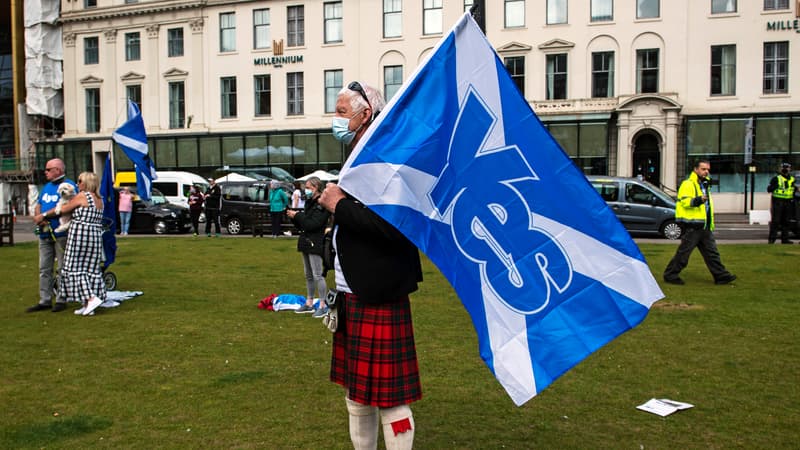Elizabeth II died Thursday at Balmoral Castle, in the Scottish countryside she loved so much. If the queen was relatively appreciated there, she is a little less so for the “Union”. The fragile period of the change of monarch could be decisive for her belonging to the United Kingdom.
The end of the reign of Elizabeth II, which lasted 70 years, represents a turnaround for the monarchical institution. A poll by think tank British Future during the Queen’s Jubilee last June shows that a third of Scots believe the Queen’s death would be a good time to abolish the monarchy and become a republic. In the same way, several Commonwealth countries could use this opportunity to get out of it.
The question of a referendum on Scottish independence was already very much on the table before the queen’s death. It is notably driven by Nicola Sturgeon, the Scottish first minister. He had obtained the organization of a first vote, in 2014. Despite the campaign of the Scottish national party (SNP), 53.5% of the ballots expressed the desire to remain in the United Kingdom, with a participation about 85%
The possibility of organizing a second referendum studied by the Supreme
Since the Brexit of 2016, Nicola Sturgeon calls for a new referendum. After the failure of the first, the decision of the United Kingdom changes the situation: the Scots had 62% of wanting to remain in the European Union.
In June 2021, Boris Johnson responded that this type of referendum should only be held once a generation, or roughly every forty years. Since then, the Scottish First Minister has asked the High Court to rule on the possibility of the Scottish Parliament holding a consultative referendum without the government’s agreement.
The matter will be considered on October 12 and 13. If it is decided in favor of the Scottish government, led by the SNP, the new election could take place on October 19.
Support for the majority but fragile Union
Getting out of the UK will still require convincing from the Scots. In opinion polls, separatists often remain a tiny minority. But in the latest survey on the subject, conducted by Panelbase for the sunday time in August, 44% of those questioned are against independence, against 43% in favor and 13% neutral and undecided.
If the moment is for the moment of national mourning, Charles III’s trip to Edinburgh and his first weeks as king will be highly scrutinized. “There is no doubt that [la reine] it was an integral part of the glue, the cement that held the nation together, and that is now gone,” explains Adam Tomkins, professor of public law at the University of Glasgow, in an article in the financial timeshighlighting Elizabeth II’s popularity across political divides.
“It is not clear that it will be replaced by something as strong or solid, he continues. I think this is a moment of fragility, risk and potential change for the Union.” […] The new king will have to rebuild that personal support.”
Source: BFM TV


